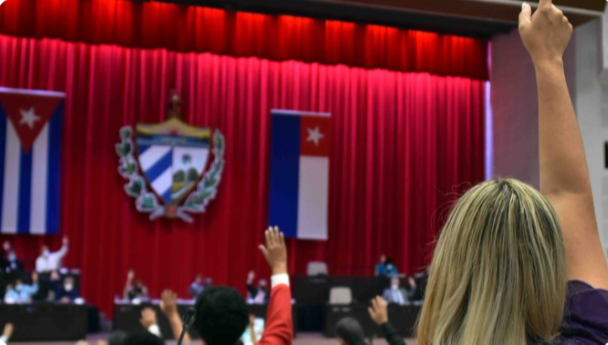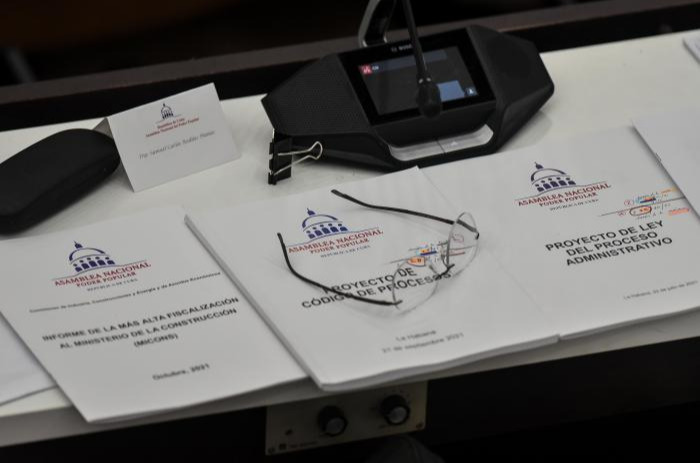
Havana, October 29 (RHC)-- As part of the schedule for the last day of the Seventh Ordinary Session of the Ninth Legislature and after intense debate in the previous days, deputies approved on Thursday four cardinal regulations: the Law on Criminal Procedure, the Law on Administrative Procedure, the Law on the Courts of Justice and the Law on the Code of Procedure.
The President of the National Assembly of People's Power, Esteban Lazo Hernandez, commented that these laws are of great importance for Cuba's judicial and procedural system.
Rubén Remigio Ferro, President of the People's Supreme Court (TSP) -who presented the summary of the four projects- emphasized that these norms develop essential aspects established in the Constitution of the Republic in the order of rights and guarantees.
A broad consultation and participation process preceded the approval of the four bills, and some 3,295 criteria on the different drafts and more than 2,800 proposals emerged, 66% of which were accepted.
Likewise, ten of the precepts were modified from the analysis and interventions in the days before this parliamentary session.
The new law on the Courts of Justice changes the organization of the island's tribunals to align them with the principles established in the 2019 Constitution and the 31 international treaties related to the actions of these structures.
Likewise, the independent and impartial nature of judges and courts is reaffirmed.
The new criminal Procedure Law introduces and systematizes principles and guarantees of due process endorsed in the Constitution and takes into account the advanced norms on the subject, which are applied internationally.
"Some of the novel aspects incorporated are the strengthening of the guarantees for the exercise of the right to defense of the persons accused of committing alleged criminal acts, such as knowing the charges against them, appointing a lawyer from the beginning of the process, proposing evidence and examining the file, among others."

Regarding the Law of Administrative Process, regulates procedures for processing and resolving the claims filed before the courts concerning the acts, material actions, and inappropriate omissions of the public administration, and the responsibility of the latter for the alleged damages or losses,
Lawmakers considered that its enactment will favor strengthening the quality and responsibility in the performance of public functions.
In this regard, Deputy Ariel Mantecón Ramos, deputy for the municipality of Ciénaga de Zapata, considered this law the most challenging since it substantially impacts the decisions made by the administration.
"Up to now, to process complaints, citizens used to resort to non-established formulas that did not make it clear which were the steps to solve their conflict," the lawmaker said.
The law on the Code of Procedures, the last bill approved, integrates the actions for resolving civil, family, mercantile, labor, and social security claims and establishes the procedures when a citizen has a conflict in these matters must go to the Court.
The Cuban legislators unanimously approved the four laws. A style commission was appointed to review the text before its signature and endorsement by the President of the Republic for its subsequent publication in the Gazette and entry into force on January 1, 2022.

